Sustainable Free Range Chicken Eggs for Your Family at Home
🌏Having some egg laying chickens at your home is easier than you may think; Cheap to keep and nearly free to feed. In the least you could reduce your carbon footprint.🌏
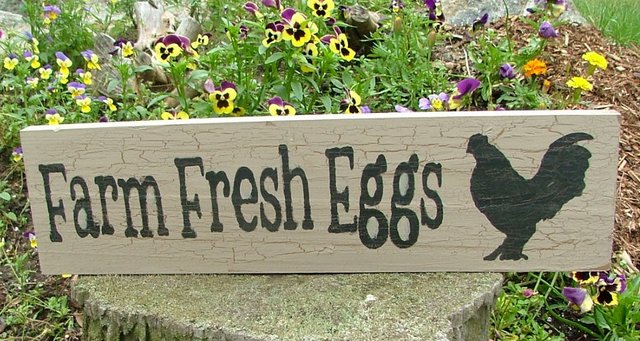
A great way to introduce, responsibility, the value of life and where food comes from to kids and your family. You will have a whole new respect for your food. Growing up my aunt had a hobby farm with chickens, goats, a couple retired horses and oddly, emu’s. I loved visiting and helping out, collecting some eggs and feeding the variety of animals, it was actually fun when I was a kid.
You don’t really need a big space, a small yard will be enough to keep them happy and healthy. Having a steady supply of eggs on your property has several benefits for you and the planet. You can keep them alive for years in a similar fashion to pets. Chickens as pets are not really all that uncommon.
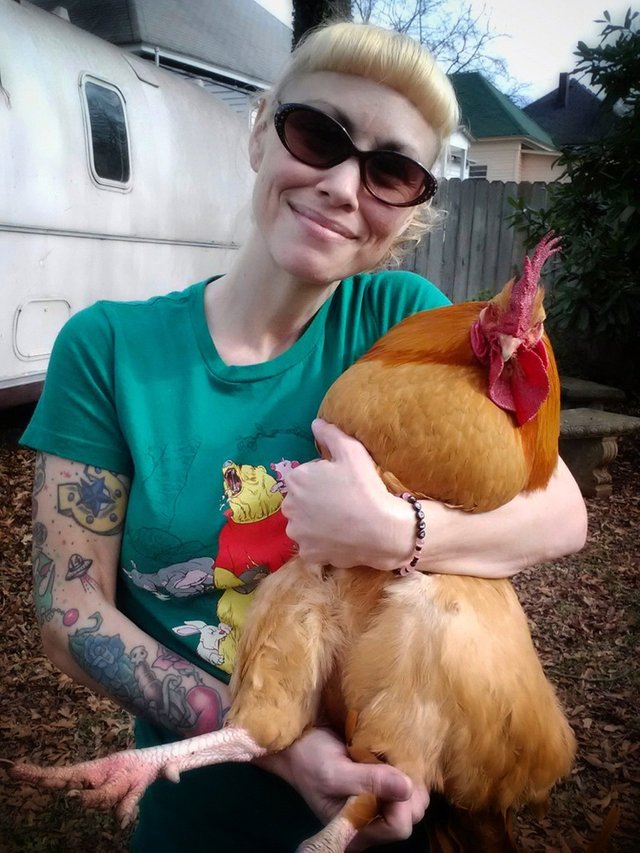
First please check with your local municipal laws as raising any type of livestock usually falls under their jurisdiction. Many populated cities in North America ban raising chickens at home due to public health concerns. Personally I think it’s a little over the top some laws because the benefits outweigh the tiny possibility of problems. However I would hate to regret that statement in the future.
So let’s have it, the easy way to produce fresh eggs daily best suited for you property and environment.

Things to consider before you start.
➊The climate you live in. Your chickens will be outside most of the day so you need a breed that thrives in the changing weather and seasons you live in.
➋How much space you have outdoors and the type of vegetation they will have access too. The amount of space will also decide the number of chicken you can sustainably keep.
➌Based your initial assessment of your property you have to choose the right chicken breed. I will point out some common breeds and why they are best for you.
➍How many people will be enjoying them will require a certain amount of chickens and thus how much feed you will need to raise them.
Here is one of many proven ways to sustainably farm fresh eggs at home. In this scenario you can make it bigger or smaller as you feel fit for your needs. Any extra eggs could be traded, sold, or gifted a great way to make friends with your neighbour.
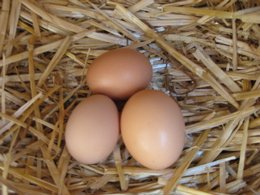
However big your yard is you need enough of the right stuff growing to feed them so you won’t need to buy it from the local shop. Buying from your local shop is not as great as you may think. Most animal grain feed comes from the Midwest and Canada and needs to be processed somewhere and then shipped to your nearest store.
You will want hardy chickens that can handle cold temperatures and are excellent at foraging. Foraging chickens will eat many things some even prefer the independence and need it to thrive.
Here a few of many breeds you should consider and why.
If you have lots of space and live out of a city.
The Buckeye
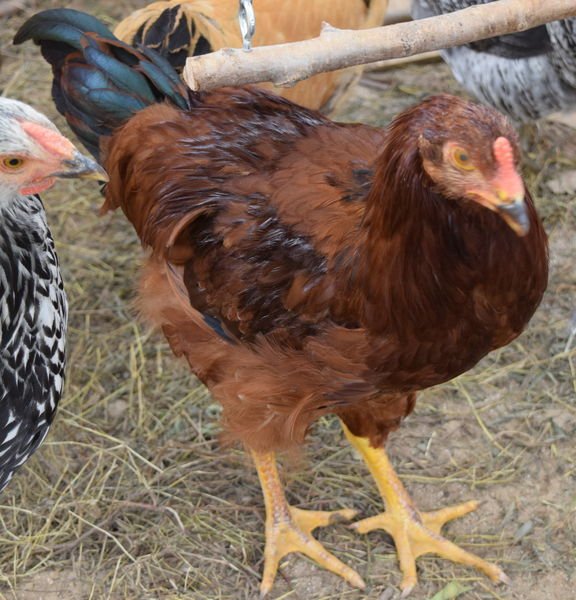
This hardy breed originates from the state of Ohio, something about that name is familiar hmm, and is perfect for any comparable climate. The Buckeye loves foraging and wandering off so you it will need a fence. It’s wandering around could also attract foxes and wolves depending where you live. This chicken, unlike common chickens, probably won’t return home because it knows where the food is. As far as they are concerned food is everywhere, seeds, worms and bugs. Their diet is incredibly easy provided your yard has the food mentioned making them also less labour intensive.
Medium space similar in size to a backyard you might find in a city.
Welsummer
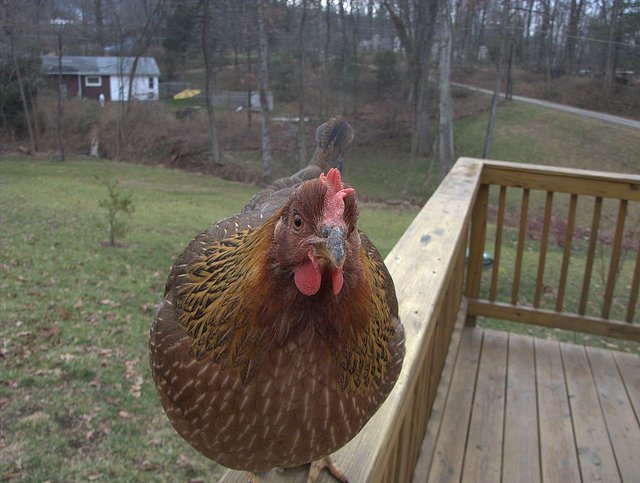
This Dutch breed lays an egg almost every day on average. It’s also a great forager and loves roaming the yard pecking at pretty much anything that could be food. Also friendly likes to follow people around like cat would. It will eat grass, greens, seeds, bugs and worms.
Rhode Island Red
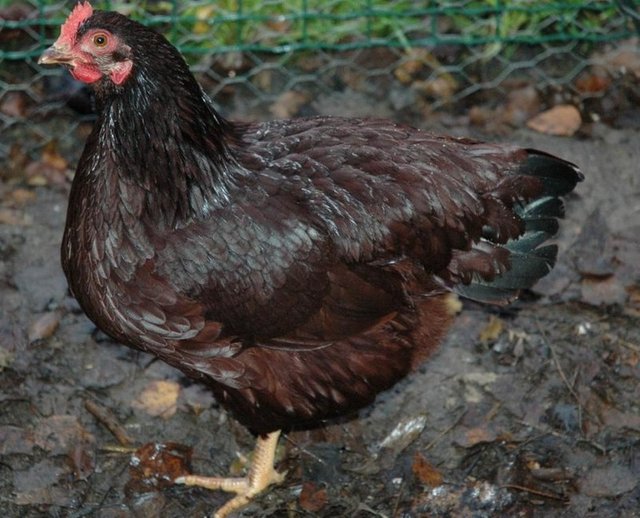
One of the most recognizable chicken breeds in North America as it comes from its cleverly derived name. It likes living in barnyards as much as they do backyards. Its popularity is from the large quantity of eggs it produces annually of up to 260 eggs. It does quite well in winter months as well. As with any breed during in the winter I personally recommend you keep some feed for back up in the event of a winter storm burying the food. Eats grass, greens, seeds, bugs and worms.
If your yard doesn’t have what chickens like to eat no problem, you can prepare the yard in advance of your chickens arriving. Here’s what you need to do before you build the coop.
From all accounts I have heard and read chickens will eat up pretty everything in its range that’s edible. Here is some really solid advice in response to a question on a popular chicken raising blog.
“I don't know what kind of chickens you have, but all of mine eat grass. They not only eat it, they strip it out of the ground by the roots and then dig up the dirt until they can wallow in it. Everywhere I put their coop and run, they have turned into a moonscape/desert. If I don't adjust the movable run an inch or two in the mornings so they can get at the edges of the grass outside it for a bit, they whine and cackle at me until I do. We have the nastiest grass that grows big ugly clumps all over the hill and they don't care! They love it, And they eat rose petals too!
Randy, plant something very inexpensive, because you will be replanting it often! Or just toss down some whole oats or wheat or barley, it all turns into nice grass that your birds can eat. You'll probably have to cover it to keep out the wild birds.” By Hypertay from http://www.backyardchickens.com/t/780332/grass-to-plant-for-chickens-to-graze-on
Other sources of food you should consider is “gleaning and vermiculture”. This will reduce your costs and help reduce waste.
Gleaning is collecting specific scrape food for feeding other livestock. For chickens, left over popcorn, rice, bread crumbs veggies and fruit trimmings for example.
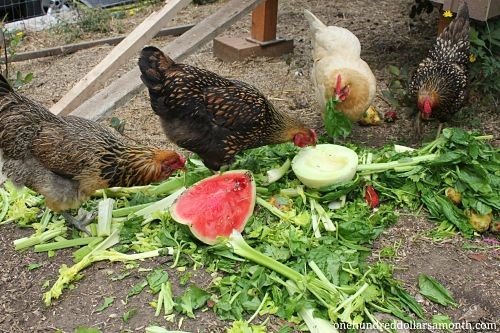
Vermiculture for chickens would be raising worms, which again is easily sustainable please reference links for more details. Foraging chickens love worms. Worms are high in protein and are huge contribution to more nutritious eggs.
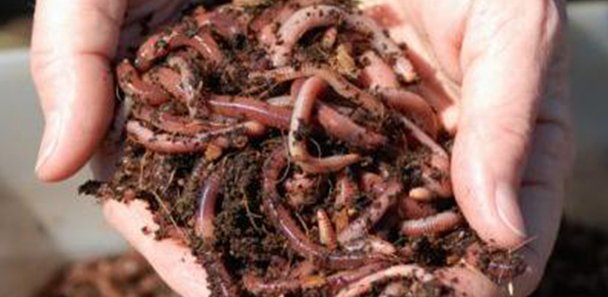
(free range chickens and eggs tend be less nutritional because they aren’t being pumped with vitamin supplements or given a specific, controlled diet, these are probably the biggest reasons you would want to raise your own eggs)
Ok so breed, food and property covered. Now let’s learn about the coop, the palace, where your egg laying friends will get cozy and feel right at home.
There are many types of coops suitable for your yard, most are homemade following some basic formats that allow for ease of use and comfort of the chickens lives. Of course you can use pretty much any clean materials you have laying around or scavenge.
You could easily throw several grand out the window or more on a luxury chicken coop for sacred voodoo rituals but we’re not nut cases and the point is to reduce our carbon foot print right? You could build a decent coop yourself for a less than couple hundred bucks easily. Oh and for the fact the best way to know what you’re eating is to produce it yourself. I can think of a couple steemers are well on this path.
Check out this $100k Coop from England with art and fancy decor.
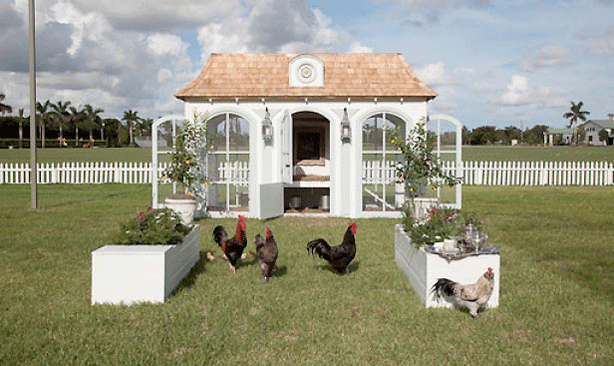
Get the full scoop here http://www.urbangardensweb.com/2013/10/24/100000-chicken-coop-what-the-cluck/
So the basic design for a small backyard coops needs to be movable to so that once the grass in one spot is eaten it can be moved to a fresh patch. This cycle can continue indefinitely since you can just water and plant more seeds. Seeds you can collect from other grass growing nearby or along pretty much any rural road. I know these chicken coops seem small but you are more than free to let them out of the enclosure if you have a fenced in yard. However they do need a home they can run to when they get spooked and to sleep safely. You don’t want stressed out chickens.
Chickens are actually quite clever and will learn the sound of your voice and some will even come when you call out to them. True story.
Here are some example coops you can get inspired by.
Small Yard
Cheap and Cheerful
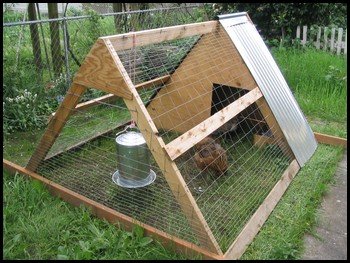
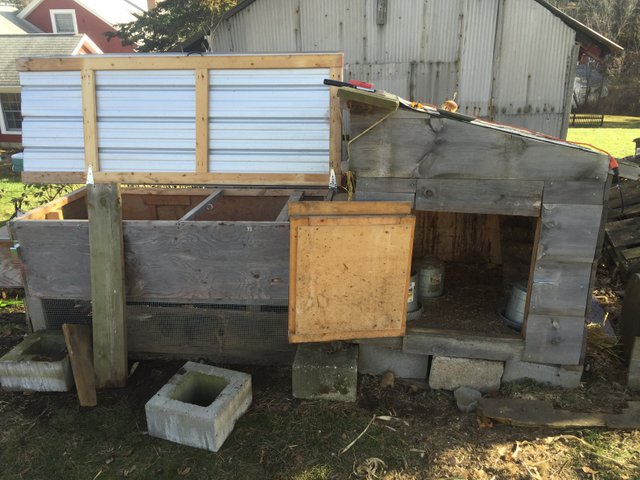
Easy to Move
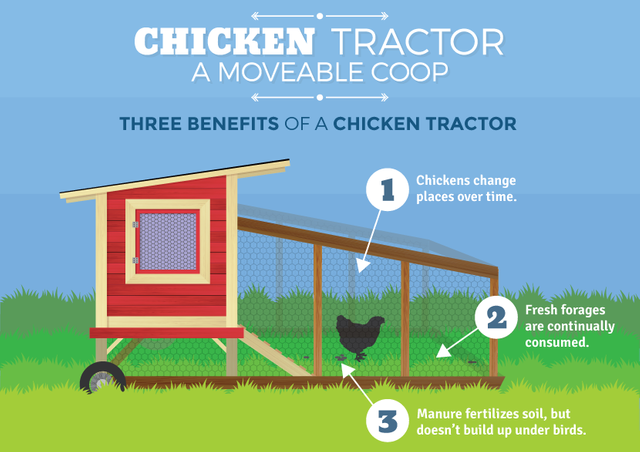
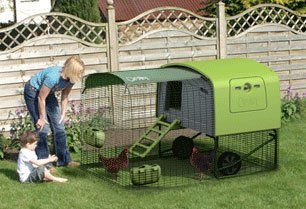
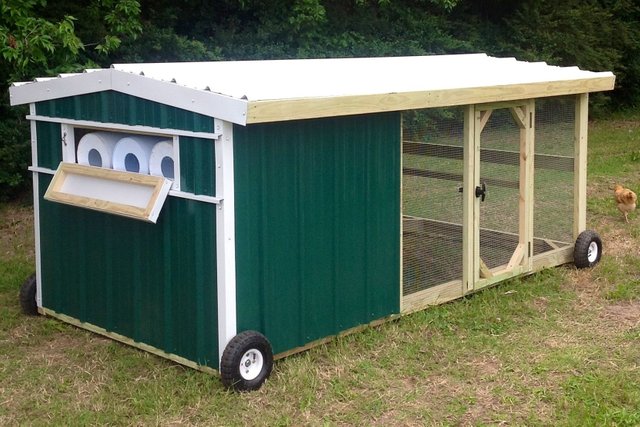
Average or Large Yard
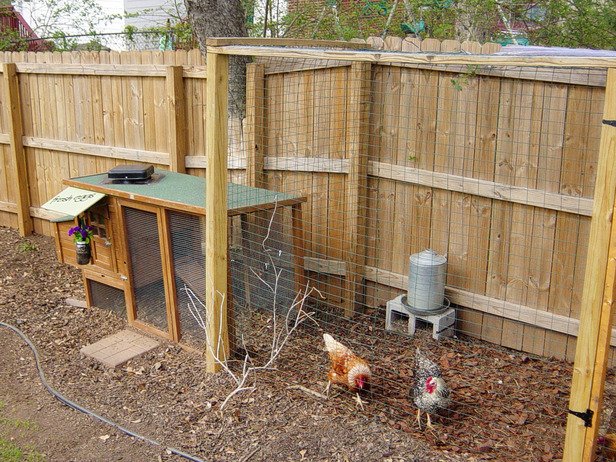
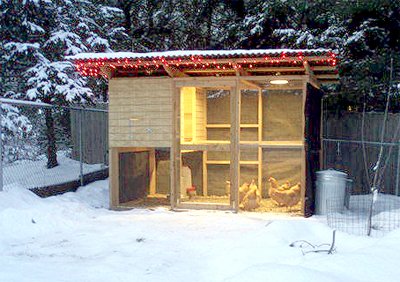
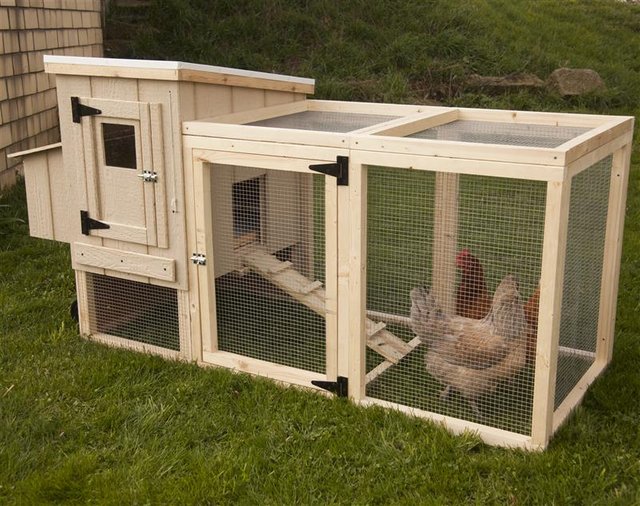
If you have big yard and want to let them run around more you might want a more permanent structure like these examples.
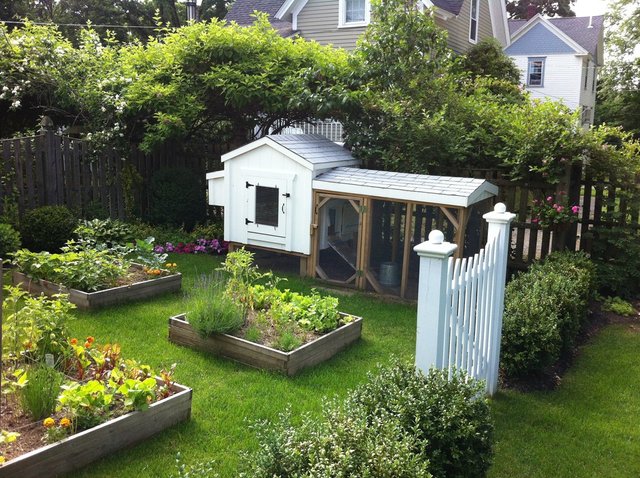
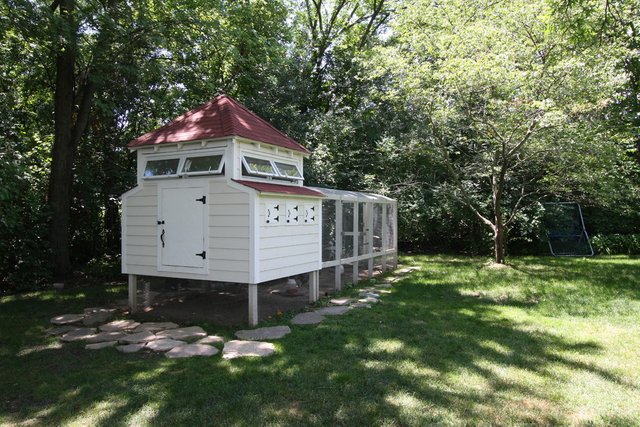
So is it sustainable?
Yes, if you have enough foliage to eat on your property you would never need to buy outside feed. Not easy in the winter but absolutely possible.
How does it reduce your carbon footprint even if you can’t be 100% sustainable, which is nothing to be bothered by, every bit helps?
➀Having their food grow on your property helps in the biggest way possible. 🚚 Store bought feed, even it’s grown from the local farm still requires trucks and tractor and labourers driving to work etc.
➁Less trips to the shop for eggs. I know you probably wouldn’t make a single trip to the shop only for eggs but hey, you get my point.
➂Farmed eggs require a lot of electricity heating, lighting, processing and collecting equipment. Modern farms are loaded with machinery and technology.
➃You can collect the poop and use it as fertilizer or add it to your biodigester for clean methane biofuel.
Without a doubt there are more ways it helps but these are some good examples to get you thinking.
https://steemit.com/life/@solarguy/prickly-pears-they-ain-t-just-for-eating
Most importantly though is knowing exactly what’s in your food. Nothing sticks it to ‘the man’ more than showing him up and knowing what you’re eating. Governments hate that stuff as much as they hate you taking care of yourself.
Anyone can take a step towards sustainability. If we don’t chose to do it now eventually it won’t be a choice and we hate not having choices.

Interested in Vermiculture? Read this website
http://www.survivopedia.com/vermiculture-guide-for-beginners/
References
http://www.hobbyfarms.com/6-foraging-chicken-breeds-for-the-thrifty-farmer-3/
http://chickscoop.blogspot.hk/2015/04/this-is-build-your-own-chicken-coop.html
http://www.sustainablechicken.com/2009/05/05/assumptions-for-sustainable-chicken-enthusiasts/
Photo Credits
https://www.etsy.com/listing/76661109/chicken-coop-farm-fresh-eggs-wooden-sign
http://www.thegardencoop.com/chicken-coop-plans.html
https://www.thisishomesteady.com/can-make-money-selling-farm-fresh-eggs-chickens-eggs-homestead-business/
http://newchikencoop.blogspot.hk/2015_05_01_archive.html
Other photos please click Image
I hope you found this article interesting and unique..
100% Steem Power FTW!!

任何时候来投票都行 我所有的票数是100% 倡导可持续发展的未来
Other posts from my Sustainable Future Series.
https://steemit.com/life/@solarguy/prickly-pears-they-ain-t-just-for-eating
https://steemit.com/science/@solarguy/growing-organic-spirulina-at-home
https://steemit.com/green/@solarguy/most-unique-bottled-water-in-the-world-come-from-some-unusual-places
Please see other posts of my Life in China 请参阅我在中国生活的其他邮件
https://steemit.com/cn/@solarguy/a-truly-haunted-place-i-discovered-in-the-hillside-of-dalian
https://steemit.com/cn/@solarguy/my-trip-into-an-abandoned-defunct-chinese-bomb-shelter
https://steemit.com/life/@solarguy/dalian-china-summer-s-end-canadian-style-bbq-bbq
https://steemit.com/cn/@solarguy/go-topless-and-support-international-women-s-rights-day
Upvoted by @gardening-trail

Join us in [the steemtrail chat channel](https://steemit.chat/channeUpvoted by @travel-trail
Join us in the steemtrail chat channel
l/steemtrail)
woo hoo. thanks. I will jump on board
Relatively small predators (anything bigger than a cat or a possum) can and will bust into a small coop like the triangular "cheap and cheerful" above. My son's elementary school -- in a heavily trafficked suburb of a city -- lost their chickens this way.
ah yes very true i totally forgot about security. Good point. Thank you.
Excellent post and very informative
thanks. hope it gets your thoughts popping. ^^
One Big Fat Rooster there 🐔
Great post - I was wondering how you look after chickens, having just read @papa-pepper farm article. Quick question , how long do chickens lay eggs for ( age) - I have contemplated having chickens when I get backto green fields again.
really enjoyed this post thanks for the share :)
Yea. I saw his inspiring article. Well chicken will lay eggs all their life but as they get older they lay less often and the quality will be reduced. So it really depends on the life expectancy of the particular breed of chicken.
try here
http://www.mypetchicken.com/backyard-chickens/chicken-help/How-long-do-hens-lay-eggs-H76.aspx
And i think you're in Egypt right? do you see chicken there running around? I always imagine that. I see them in some places here in China.
not chickens - but goats, sheep, cows and lots and lots of stray dogs!! - 'farm' animals are in the side streets in the old side of Cairo - quite sad to see really. The Delta side of Cairo is where all the 'green' fields are going up towards Alexandria and here is where cows, sheep, goats get to see and feel green grass! The only chickens I have seen are in cages ! ( hate it) they keep a lot of pigeons on the roof tops
I want to do this when i retire can't at the mo as he in the wrong place. Fab information :)
I hope I can do this too someday. ^^